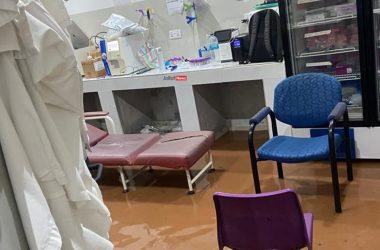
The First Lady of the Gambia has selected by the African Union Commission to lead the West African region’s efforts in ensuring a pollution-free Africa.
Fatou Bah-Barrow was selected at the just concluded at the First Ladies’ Dialogue during the 32nd ordinary summit of the African Union held on February 10th in Addis Ababa, Ethiopia.
As part of her role, Ms Bah-Barrow will spearhead the campaign to ban and eradicate plastics on the continent.
The First Lady said she will use her new role to help the gradual eradication of plastics through advocacy and awareness raising on the impacts of plastics and share experience on strategies and measures being undertaken to address the menace of plastics.
She said the Government of the Gambia is conscious of the health and environmental hazards associated with the growing demand for plastics, and remains committed to maintain the ban on plastic bags.
Ms Bah-Barrow expressed her appreciation to the African Union Commission and her fellow first ladies from across Africa at the High Level Working Session on Banning Plastics in Africa, for the laudable initiative and the honour bestowed on her as champion for West Africa.





Plastic may be linked to:
1. Cancer.
2. Birth defects.
3. Poor immune system and
4. Environmental pollution etc
The Gambia needs to develop and implement a comprehensive plan to deal with the environmental and health impact of plastic.
Charity begins at home.
#PlasticfreeGambia
A Nigerian PHD student in engineering has come up with an ingenious technique to make durable building materials from cassava peelings which is only waste in Nigerian. The process and the equipment for turning the waste material into construction materials are his idea. So far so good.
But brace yourself for what’s about to come is nothing sort of a disaster of the biggest magnitude for our continent.
A certain university in Europe offered him a scholarship and a research grant of 150.000 Euros.
A few years down the line, he was successful in streamlining the process and the production design. Then he realized the patent and the process belongs to the said university. Before both could be deployed in Afrikka, one will have to buy the machines from a factory that licensed the patent at huge costs and of course pay for transportation.
The lesson is that Afrikkan governments get their priorities totally mixed up. As Bourne alluded to, it’s goddamn frustrating to know those we pay to work for us are only interested in living flamboyant and extravagant lives at the expense of the poor and the meek.
Fatou Bah is the one who is suppose to advocate against plastic and bring awareness to its harmful effects on heath and the environment. Isn’t it the same Fatou Bah who still have to answer for the missing millions that from the sky landed in her foundations account and quickly disappeared like a lightening flash? This most be some kind of a joke.
I mean…………But it’s the Afrikkan Union again. They even hire killers and torturers like Edward Singhateh to be commission Vice Presidents.
The status quo will never render us salvation. What is needed is leaders with moral integrity and sincerity to better our wretched living conditions. The role of the general population is to be ready to fight for what belongs to them by all and every means necessary.
Yours in the service of The Gambia and Afrikka, I remain.
I bet Fatou Bah’s fridge is packed with imported plastic bottled water.
The campaign is good for publicity and lining pockets, but the truth is, it’s just a show.
African Governments are too bankrupt to seriously invest in sustainable waste management processes.
Some countries have even signed contracts with foreign firms to receive waste that they are not equipped to handle. Some of these waste materials are very toxic and dangerous to the health of their populations and the environment.
We need to be vigilant in The Gambia because the problem is only getting worse, since China stopped being the rubbish bin of the advanced economies.